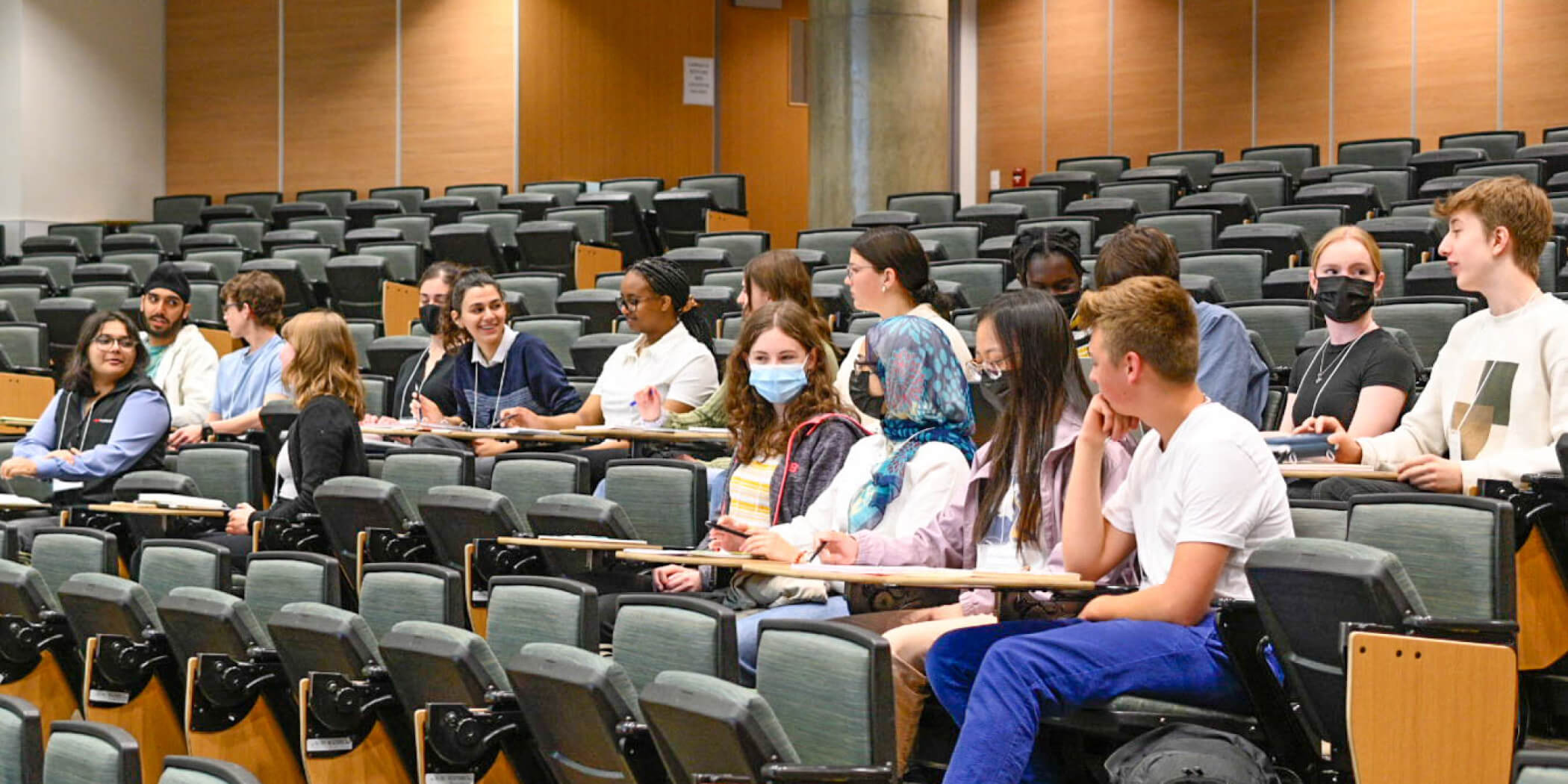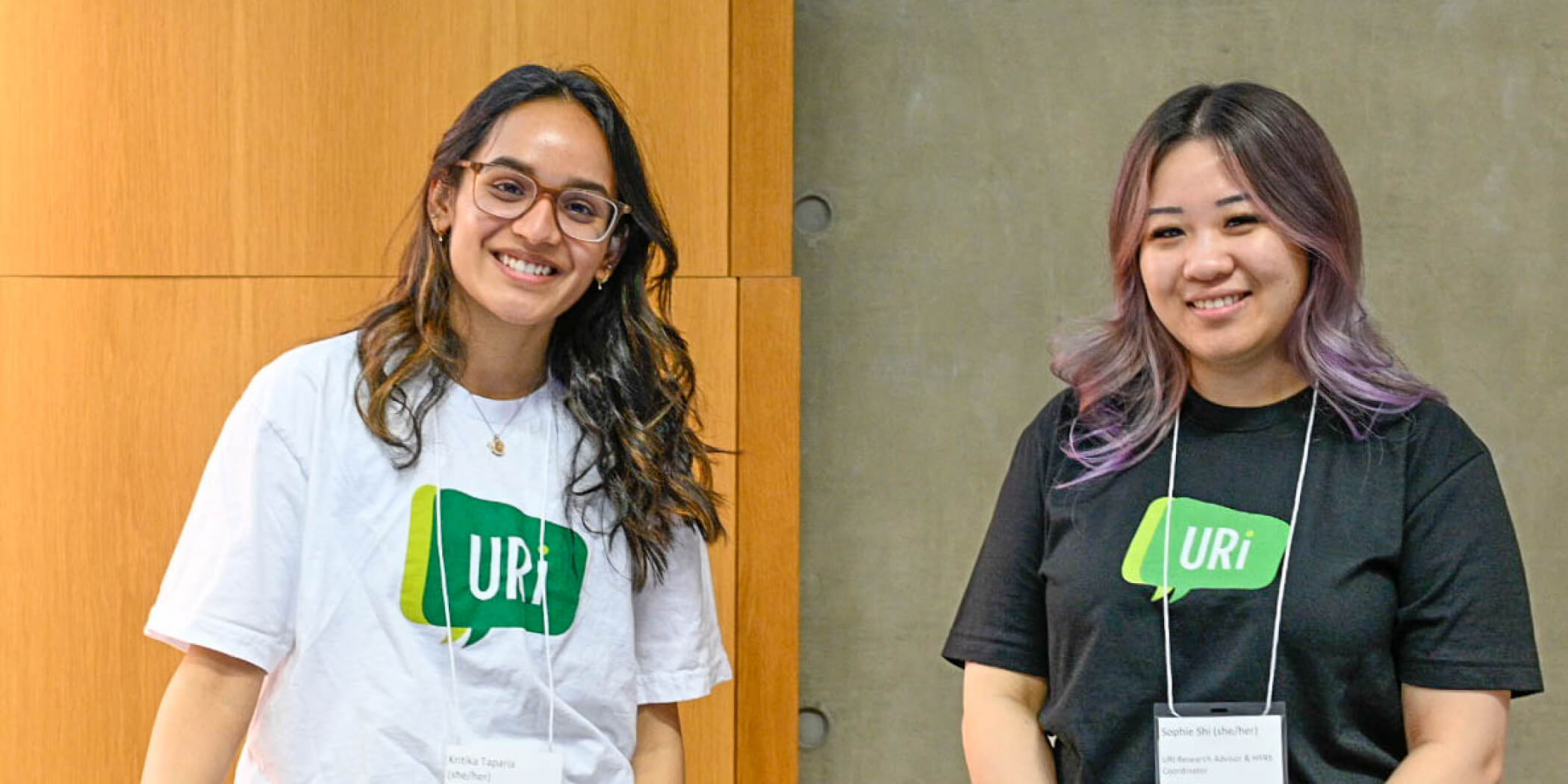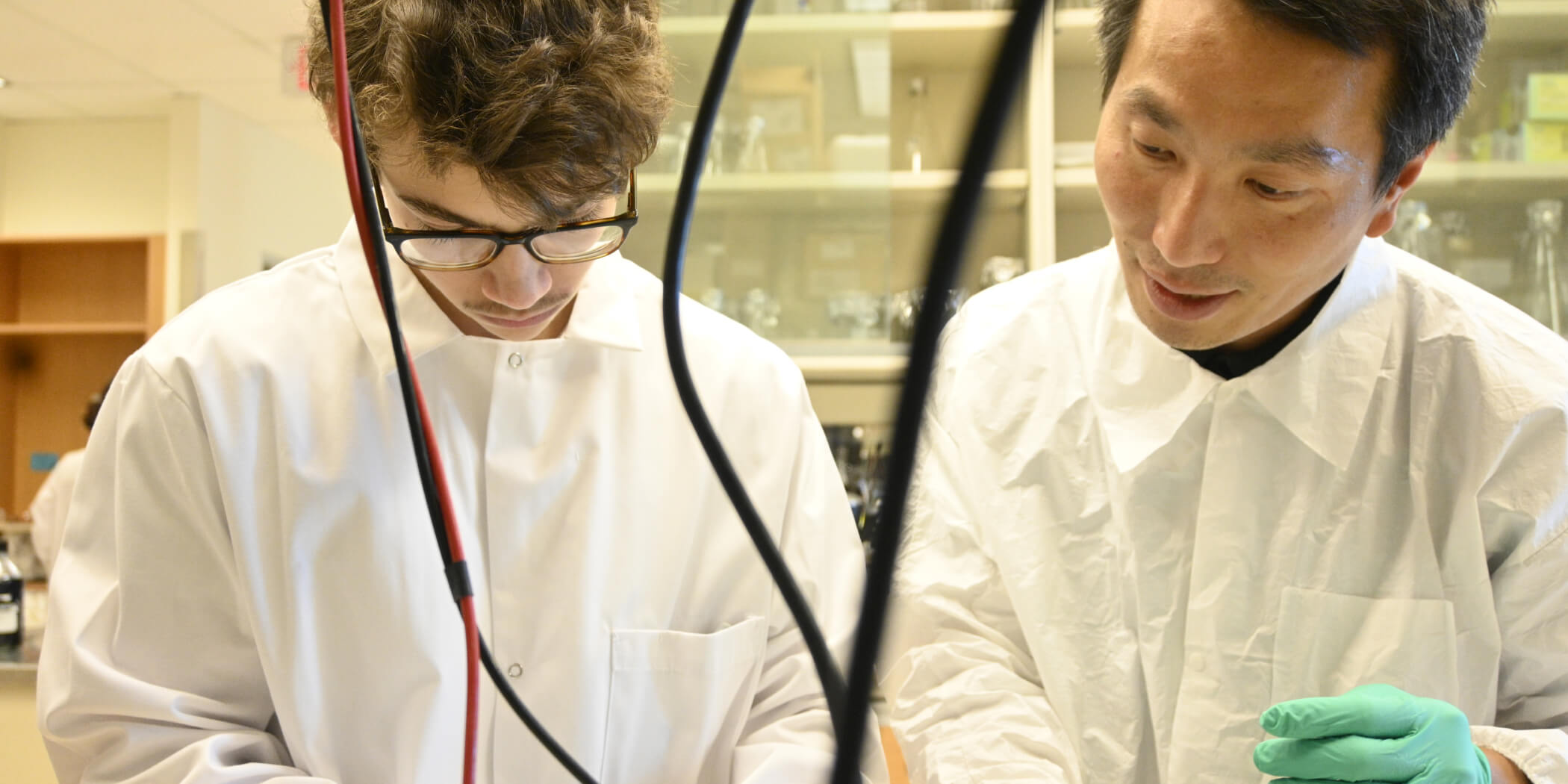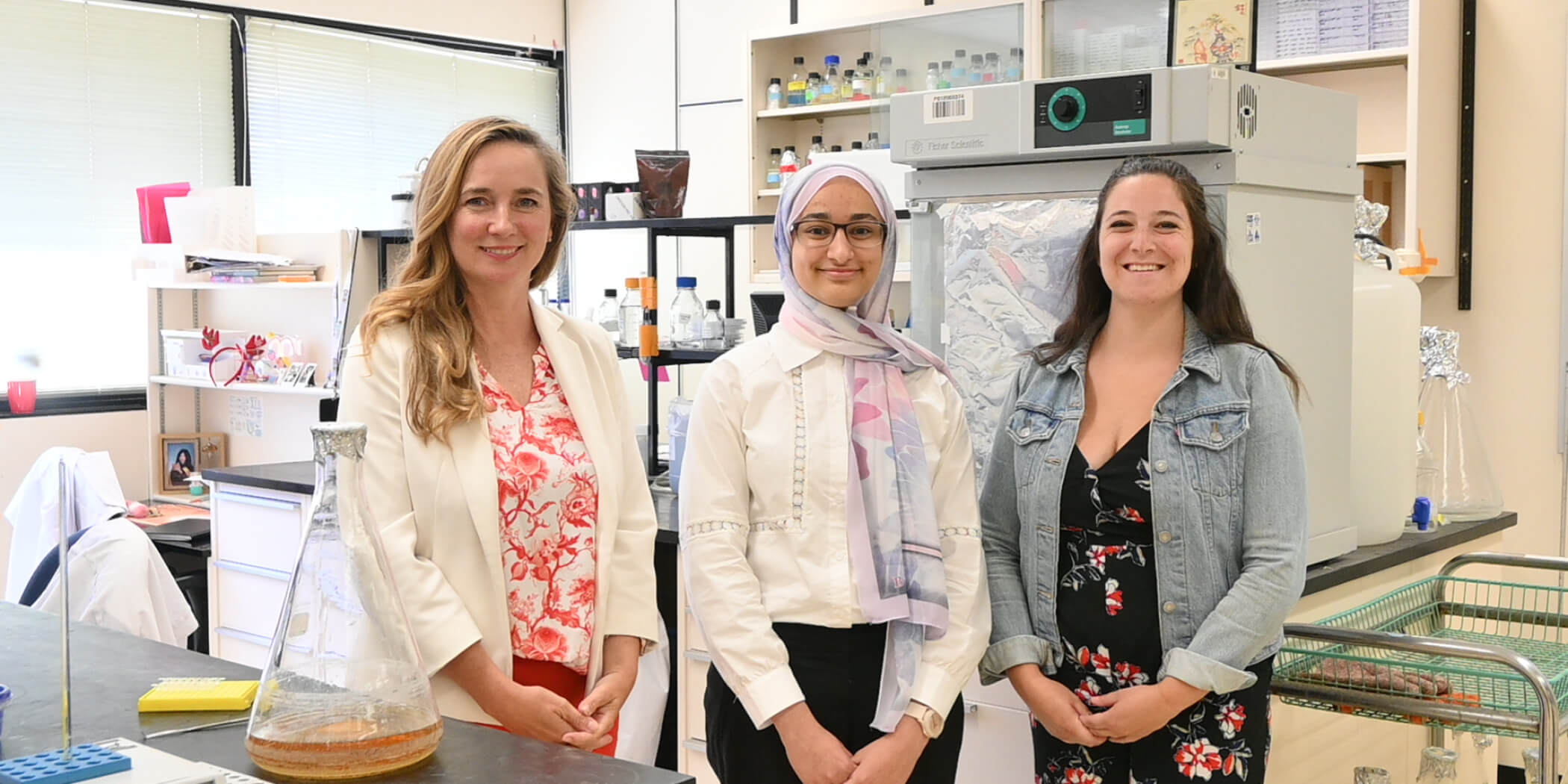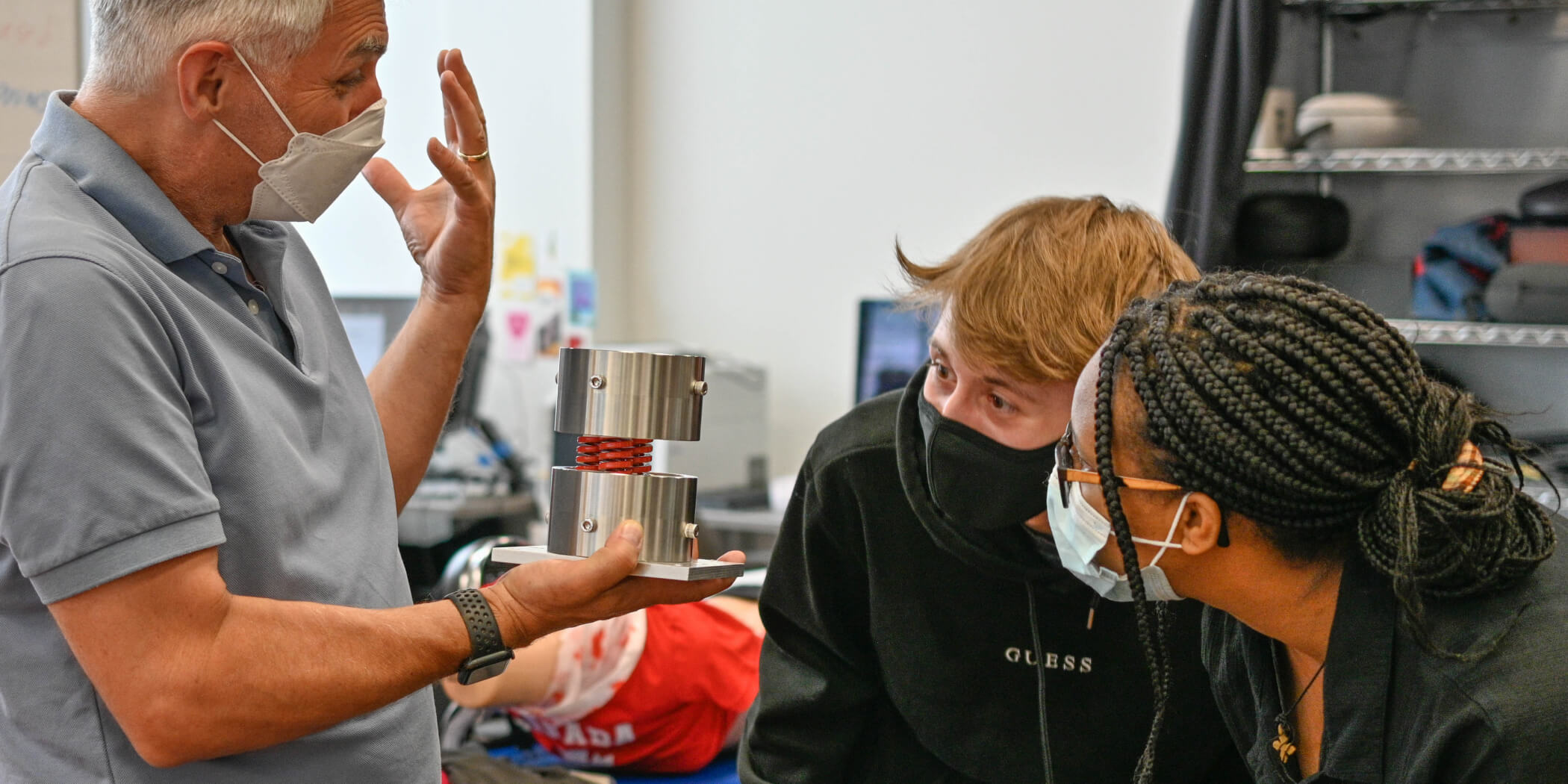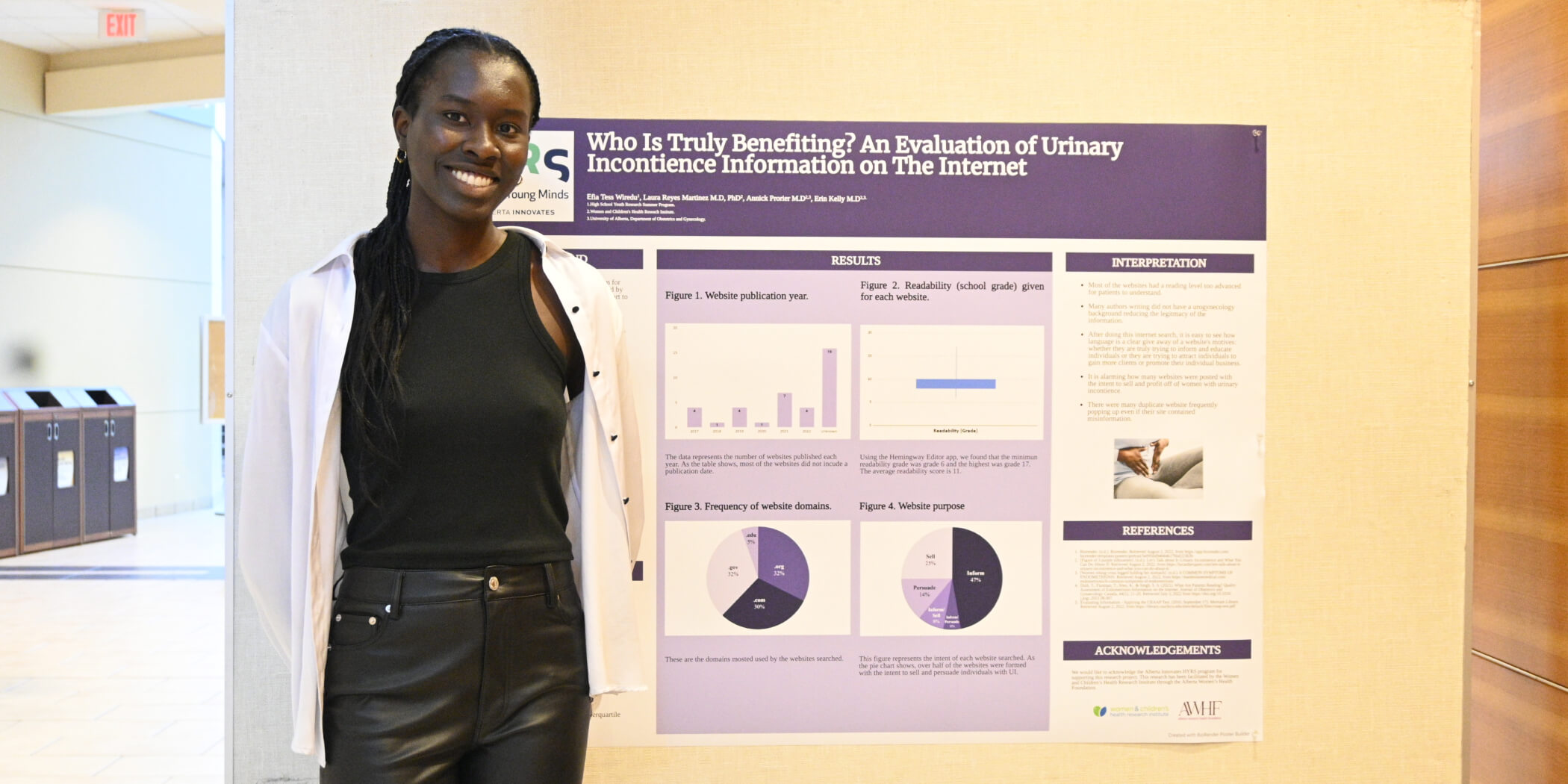What to expect from your HYRS experience
HYRS Program Information
- Students normally work Monday-Friday, 8 a.m. – 4 p.m. or 8:30 a.m. – 4:30 p.m. (35 hours/week).
- Most placements are on the U of A North Campus. A few placements may be located at other sites (e.g. clinic or hospital-based research sites) accessible from the U of A campus by public transit.
- HYRS students are paid as hourly employees ($15/hour) for 35 hours/week. Students are paid according to the University of Alberta’s semi-monthly pay schedule.
- HYRS students will receive a U of A Campus Computing ID and OneCard.
- HYRS students will have U of A library borrowing privileges.
- Parking, transportation, accommodations, meals, and other expenses are the responsibility of the student. Gym/fitness facility membership is NOT included for HYRS students, but students may apply for and purchase their own membership.
- The HYRS program offers a limited number of partially-subsidized spaces in St. Joseph’s College Women’s Residence, available only to students from outside the greater Edmonton metropolitan area.
Placement information
- HYRS placements may be in any area relevant to health/medicine, or Alberta Innovates priority areas.
- Students provide information about their interests in their application form, and if accepted to the program, HYRS will take these into consideration when matching students to available placements.
Examples of past HYRS placements
Due to the timing of host and student applications, we are unable to provide a confirmed list of available HYRS placements for students to choose from. Some examples of past placements are provided below to give you an idea of the diversity of placements that may be available. Placements vary each year according to host availability - we cannot guarantee the availability of placements in specific areas of student interest. As HYRS is intended to encourage exploration of various career options, we encourage students to approach HYRS with an open mind and a willingness to try new things.
- Public Health
-
- Identifying and examining trends in climate change and psychological health programs within K-12 education systems.
- Dentistry
-
- Children: Drawing Hospital as a tool to measure dental anxiety in children
- Panoramic radiography: its utilization and potential with machine learning in dentistry
- Medical Education
-
- Enhancing learning and communication: using flashcards for teaching congenital heart conditions and patient-doctor interactions
- Game development towards learning congenital heart defects
- Urogynecology
-
- MD on the Net: Analysis of the accessibility of online information on bladder pain syndrome
- Medicine
-
- Exploring Long COVID-19 risk factors within the COVID-19 Surveillance Collaboration Project
- Making a CHANGE: Exercise and metabolic syndrome
- Rehabilitation Medicine
-
- Development of a clinical cough classification machine learning tool
- Laboratory Medicine & Pathology
-
- Determination of local freshwater fish consumption for future development of dietary guidelines
- Analysis of trace elements in drinking water collected from the municipal district of Wainwright
- Surgery
-
- Using eye-tracking technology to improve laparoscopic surgeries by overcoming spacial disorientation
- Chemistry
-
- Developing synthetic routes for nucleoside analogues with antiviral activity
- Medical Microbiology and Immunology
-
- Expression and characterization of Toll-like Receptor 7, a human immune receptor that induces antiviral signaling
- Medical Genetics
-
- Developing screening methods to identify disease-causing genetic variants responsible for spondylocostal dysostosis Type III.
HYRS Schedule-at-a-glance
Note: The specific professional development activities for the HYRS program vary each year - the schedule below is just meant to provide a general overview of what you can expect during the six weeks of the program.
Pre-program
- Complete online lab safety training
- Complete Privacy & Security online training
Week 1 (July 3-10)
- Residence move-in and orientation (for students outside the greater Edmonton area)
- HYRS student orientation, campus tour, library orientation, and safety training
- Meet your HYRS host
- 1x1 check-in with HYRS staff
Week 2 (July 11-17)
- Monday - Friday morning – work in your host placement
- Friday afternoon - HYRS Professional Development/Career Exploration Activity (e.g. research facility tour, guest speaker, and/or skill development workshop)
Week 3 (July 18-24)
- Monday - Friday morning – work in your host placement
- Friday afternoon - HYRS Professional Development/Career Exploration Activity (e.g. research facility tour, guest speaker, and/or skill development workshop)
- Mid-program check-in with HYRS staff (site visit in your placement)
Week 4 (July 25-31)
- Monday - Friday morning – work in your host placement
- Friday afternoon - HYRS Professional Development/Career Exploration Activity (e.g. research facility tour, guest speaker, and/or skill development workshop)
Week 5 (August 1-7)
- Monday - Friday morning – work in your host placement
- Friday afternoon - HYRS Professional Development/Career Exploration Activity (e.g. research facility tour, guest speaker, and/or skill development workshop)
Week 6 (August 8-14)
- Finalize and print research posters
- Wrap-up host placement
- Host appreciation luncheon
- HYRS Celebration of Research
- Final program reflection
- Residence move-out
Post-program
- Present to your high school and student groups about your HYRS experience
- (optional) Present your HYRS poster at URI’s Festival of Undergraduate Research & Creative Activities (FURCA)
- (optional) Stay connected with your HYRS cohort and participate in ongoing professional development opportunities
